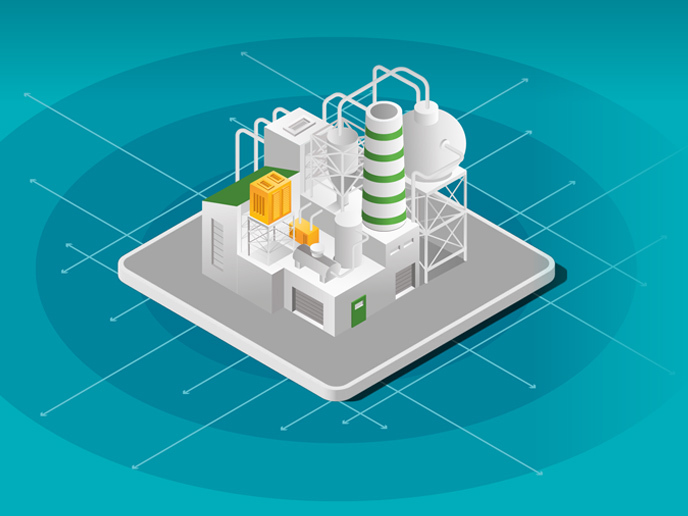Greening transport through locally sourced plant waste
“We are confident that it is possible to produce 100 % renewable natural gas at competitive cos
Gonçalo Lourinho, HYFUELUP project coordinator
New technology to produce renewable natural gas from biowaste is being pioneered by the EU-funded HYFUELUP project. The biomethane produced will be used as liquid fuel to decarbonise long-distance road freight transport and maritime transportation. “We recognised the need for waste diversification in biomethane production,” explains project coordinator Gonçalo Lourinho from the BIOREF Collaborative Laboratory for Biorefineries in Portugal. “This is critical for increasing production levels, and decarbonising Europe’s gas supply.” To achieve this, the HYFUELUP project is developing innovative technologies that are more adaptable to the use of diverse local renewable resources. These could include crop residues, lignocellulosic residues and other low-cost biogenic wastes. The core technologies involved – advanced gasification and methanation – have already been developed, and the focus now is on scaling them up. These will then be tested and optimised, before a demonstration plant in Portugal is constructed. “This plant will provide evidence of the new value chain for biomethane production we are proposing,” says Lourinho. “This stage of the project will also be accompanied by an initial feedstock assessment, and a sustainability analysis of the produced biomethane. The aim here is to explore the potential and viable future market uptake of the HYFUELUP solution.” Lourinho believes that the HYFUELUP project is already well on track to meet its goal of deploying an economically viable biomethane demonstration plant in 2026. If successful, the technology could then be replicated in other European countries. Indeed, Lourinho sees this as an essential element of building a competitive and sustainable energy system, with a significantly reduced dependency on imported natural gas. The project will also encourage increased sustainability in the transport sector, and create a market for locally sourced biowaste to be used as feedstock. “We are confident that it is possible to produce 100 % renewable natural gas at competitive costs and with greater efficiency in terms of carbon utilisation,” he adds. “And this will be achieved through using different low-cost biomass waste mixtures.”
Keywords
biomethane, biogas, natural gas, sustainability, renewable fuels, green energy transition, REPowerEU, Research and Innovation, renewable technologies, biomethane technologies, solar energy



